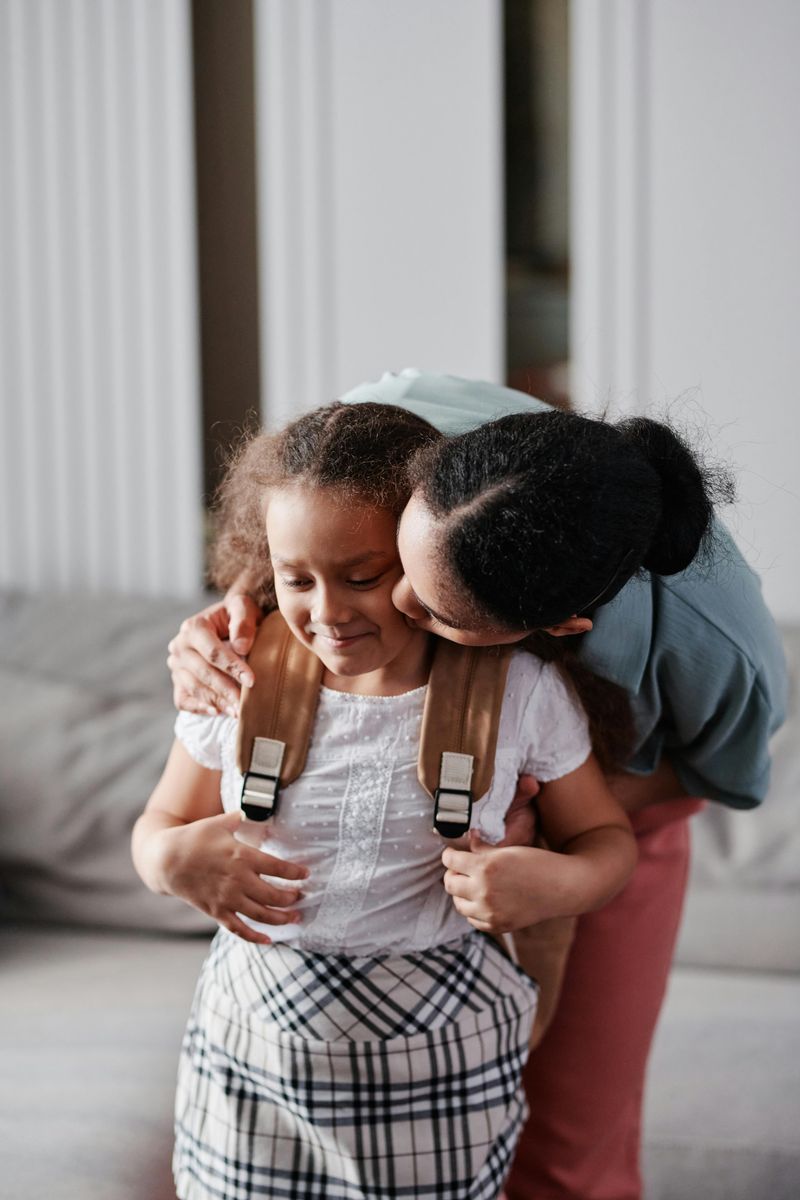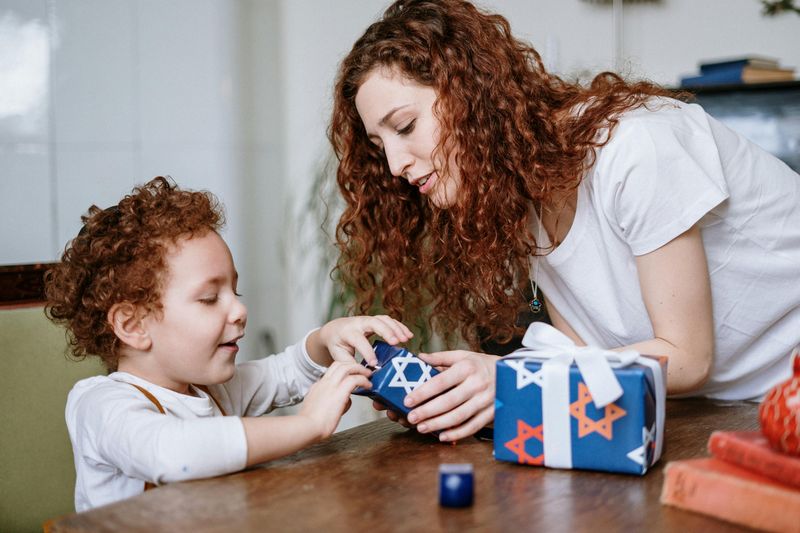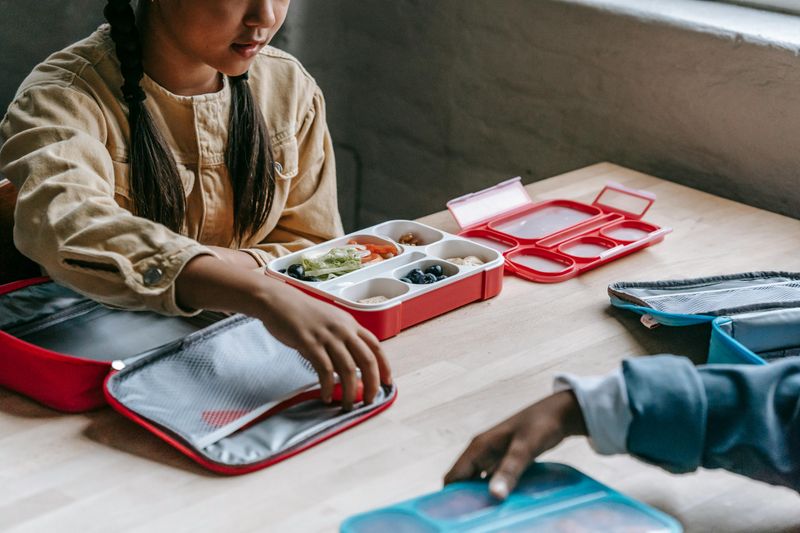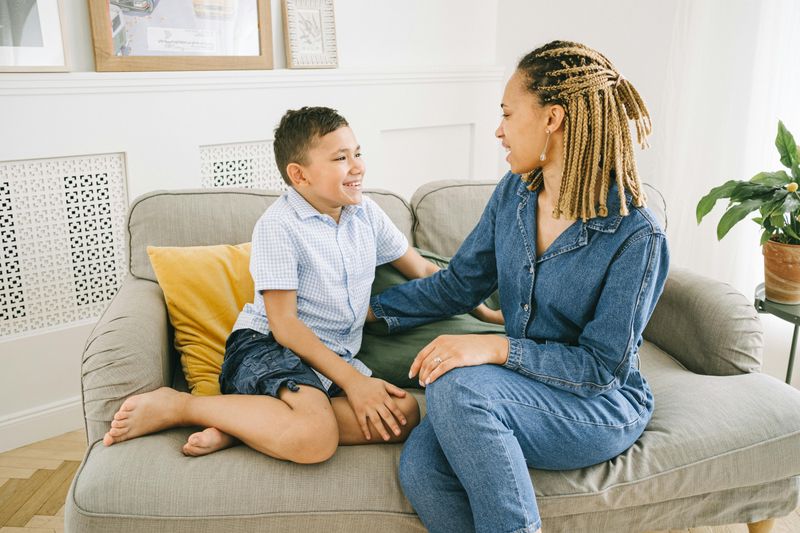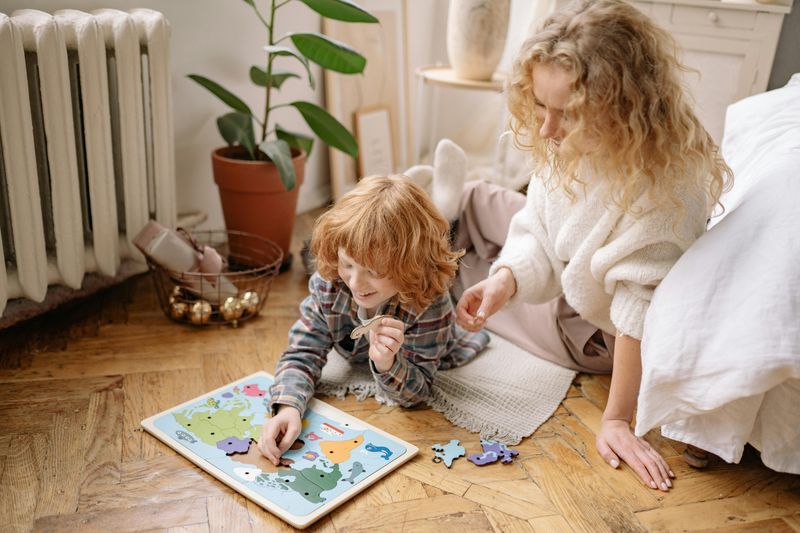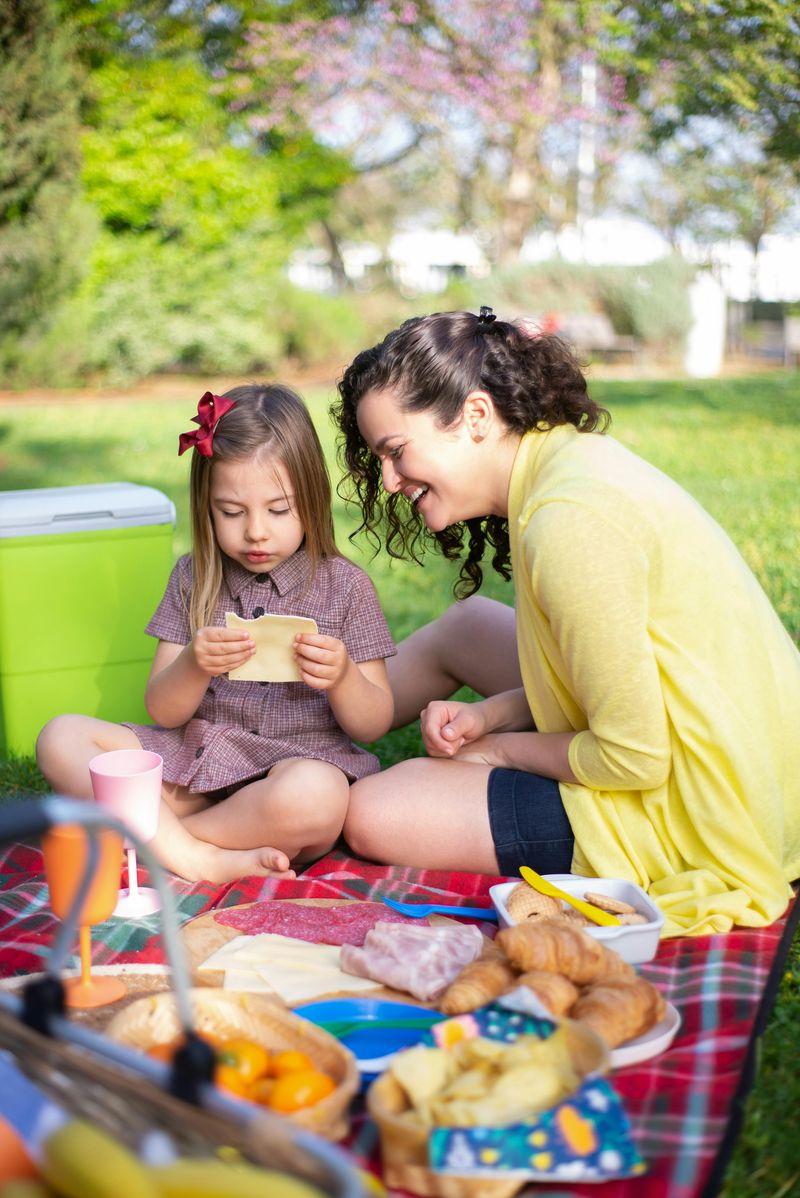Raising happy, confident kids isn’t about grand gestures or expensive gifts. The true magic happens in those small, everyday moments that might seem insignificant but actually build a child’s sense of security and worth. These tiny actions communicate love in ways that sink deep into a child’s heart, creating the emotional foundation they’ll carry throughout life. Let’s explore these simple yet powerful ways to make the children in your life feel genuinely cherished every single day.
1. Give Them Your Full Attention
When your child speaks, put down your phone and truly listen. Making eye contact and responding thoughtfully shows them they matter more than any distraction. This simple act validates their thoughts and feelings in profound ways. Kids can tell the difference between partial attention and being fully present.
Those moments when you focus completely on them become treasured memories that strengthen your bond. They learn they’re worth listening to. Even five minutes of undivided attention daily makes a bigger impact than hours of distracted time.
When they share something, respond with genuine interest rather than automatic replies. This tiny shift changes everything.
2. Whisper “I Love You” During Ordinary Moments
Saying these three words during unexpected times—while tying shoes, during breakfast, or as they’re playing—creates beautiful surprise moments of connection. Children never tire of hearing genuine expressions of love, especially when they’re not prompted by anything special.
The timing matters as much as the words themselves. Randomly telling your child you love them teaches them that love isn’t conditional on achievements or behavior. It simply exists, constant and reliable. Make it a habit to express love during mundane activities.
These spontaneous declarations become emotional anchors, giving children confidence that they are valued simply for being themselves.
3. Create a Special Physical Connection
Every child has their own comfort level with physical affection. Discover what yours responds to—maybe it’s a special handshake, a gentle hair tousle, or a specific type of hug. These physical connections release oxytocin, the bonding hormone that creates feelings of trust and security.
Morning cuddles, bedtime snuggles, or spontaneous hugs throughout the day provide the physical reassurance children crave. For more independent kids, high-fives or fist bumps might be their perfect love language. The key is consistency and respect for their preferences.
When you honor their boundaries while still offering appropriate touch, you teach them about consent while fulfilling their need for physical connection.
4. Celebrate Effort Over Outcome
“I saw how hard you worked on that!” carries more weight than “Good job!” when your child tackles something challenging. Noticing their persistence, creativity, or problem-solving teaches them that the journey matters more than the destination.
Kids who receive praise for effort rather than natural ability develop resilience and a growth mindset. They learn that mistakes are valuable parts of learning, not failures to be ashamed of. This tiny shift in your response helps them build confidence from within.
Specific observations make the biggest impact. Rather than generic praise, mention exactly what impressed you: “You kept trying different approaches until you figured it out!” This teaches them to value their own process.
5. Honor Family Rituals That Matter
Morning goodbye waves, special weekend breakfasts, or bedtime routines might seem small, but these predictable moments create security children crave. Family rituals become emotional anchors kids can count on when other things in life feel uncertain.
Children thrive on these dependable touchpoints throughout their day. The magic isn’t in what the ritual involves—it’s in the consistency and connection it provides. Even busy families can create simple traditions that take just minutes but mean everything.
Shared experiences build a family culture that children carry into adulthood. Whether it’s Taco Tuesday, Sunday park visits, or goodnight phrases repeated the same way each evening, these rituals become the foundation of childhood memories that last a lifetime.
6. Leave Surprise Notes in Unexpected Places
A heart drawn on a napkin tucked into a lunchbox. A sticky note on the bathroom mirror with an encouraging message. A simple “I’m proud of you” slipped into a homework folder. These tiny written reminders of your love create moments of joy throughout their day.
For younger children who can’t yet read, simple drawings work beautifully. The effort behind these little surprises speaks volumes. They show you were thinking about your child even when you weren’t together. The unexpected nature of these notes makes them special.
Finding these little love tokens becomes a delightful treasure hunt that brightens ordinary days and creates tangible reminders of your affection that children often save for years.
7. Ask Specific Questions About Their Day
“What made you laugh today?” or “Who did you play with at recess?” invites much richer conversations than “How was school?” These targeted questions show you’re genuinely interested in the details of their world and experiences. Children open up more when questions feel like invitations rather than interrogations.
Timing matters too—some kids need decompression time after school before they’re ready to share. Find your child’s natural talking window, whether it’s during car rides, at dinner, or at bedtime.
Following up on previous conversations demonstrates you remember what’s important to them. “Did Sarah bring her new puppy to school today?” shows you were listening yesterday and care about the continuing story of their life.
8. Connect Through Their Personal Love Language
Some children feel most loved through words, others through touch, gifts, service, or quality time. Watching how your child expresses love often reveals how they prefer receiving it. A child who constantly makes you drawings might treasure a simple sketch from you above all else.
For kids who value quality time, even fifteen focused minutes playing their favorite game means everything. Service-oriented children feel cherished when you help with something important to them without being asked. Gift-lovers treasure small, thoughtful tokens that show you know their interests.
Discovering and honoring your child’s unique love language creates a deeper emotional connection. When you speak their particular dialect of love, your gestures resonate more powerfully, making them feel truly seen and understood.
9. Share Genuine Laughter Together
Silly faces in the mirror, inside jokes only your family understands, or impromptu dance parties in the kitchen create bonds through shared joy. Laughter releases endorphins that strengthen emotional connections and create positive associations with family time.
Children who laugh regularly with their parents develop better stress management skills. These playful moments show kids it’s safe to be their authentic, goofy selves around you. They learn that life doesn’t always have to be serious. Make space for silliness even during busy days.
Being willing to be ridiculous sometimes—wearing mismatched socks on purpose or making breakfast for dinner—shows children you value fun and connection over perfectionism. These become the golden memories they’ll cherish forever.
10. Respect Their Choices in Small Matters
Allowing children to choose their own clothes (even mismatched ones), decide between two dinner options, or pick the bedtime story empowers them in age-appropriate ways. These small decisions build confidence and independence while showing you respect their preferences.
Freedom within boundaries helps children develop decision-making skills. Having control over small aspects of their lives satisfies their growing need for autonomy without overwhelming them with too many choices. They feel valued as individuals with valid opinions.
The way you respond to their choices matters enormously. Supporting their decisions, even when they differ from your preferences, teaches them their thoughts matter. This doesn’t mean letting them control everything—just creating spaces where their voice genuinely counts.
11. Offer Sincere Apologies When You Mess Up
Parents aren’t perfect, and admitting mistakes teaches children powerful lessons about honesty and respect. A genuine “I’m sorry I snapped at you earlier” shows them that everyone makes mistakes, and relationships can heal after conflicts. Children learn how to apologize by watching you do it.
When you acknowledge your errors without making excuses, you model emotional responsibility. This builds trust and shows them that love includes accountability. Effective apologies include acknowledgment, regret, and a plan for change: “I shouldn’t have raised my voice. I feel bad about that. Next time I’m frustrated, I’ll take a deep breath first.”
This approach teaches children how healthy relationships work through inevitable rough patches.
12. Maintain Loving Boundaries Consistently
Children feel safest within clear, consistent boundaries delivered with kindness. Knowing what to expect—bedtimes, screen limits, behavior expectations—creates security rather than restriction. They understand where the guardrails are, allowing them to explore confidently within those limits.
The compassionate enforcement of boundaries shows children you care enough to protect them, even when it’s uncomfortable. This balance of firmness and warmth helps them develop self-regulation skills they’ll need throughout life.
When children test limits (and they will), responding predictably rather than reactively reinforces their sense of security. “I understand you want to stay up later, but our family rule is 8:30 bedtime” communicates both empathy and consistency, wrapping boundaries in love.
13. Create Sacred One-on-One Time
Even ten minutes of undivided attention regularly dedicated to each child creates a special connection nothing else can replace. This doesn’t require elaborate planning—reading together, taking a walk, or simply sitting and talking can become treasured rituals when done consistently.
During this special time, let your child lead the activity or conversation. This communicates that their interests matter and they have your complete focus. Siblings understand waiting their turn when they know they’ll get their own special time too.
Many children open up during these private moments in ways they never would in group settings. Put this sacred time on your calendar and protect it from interruptions. The message it sends—you are worth my undivided time—builds their sense of value more than almost anything else.


